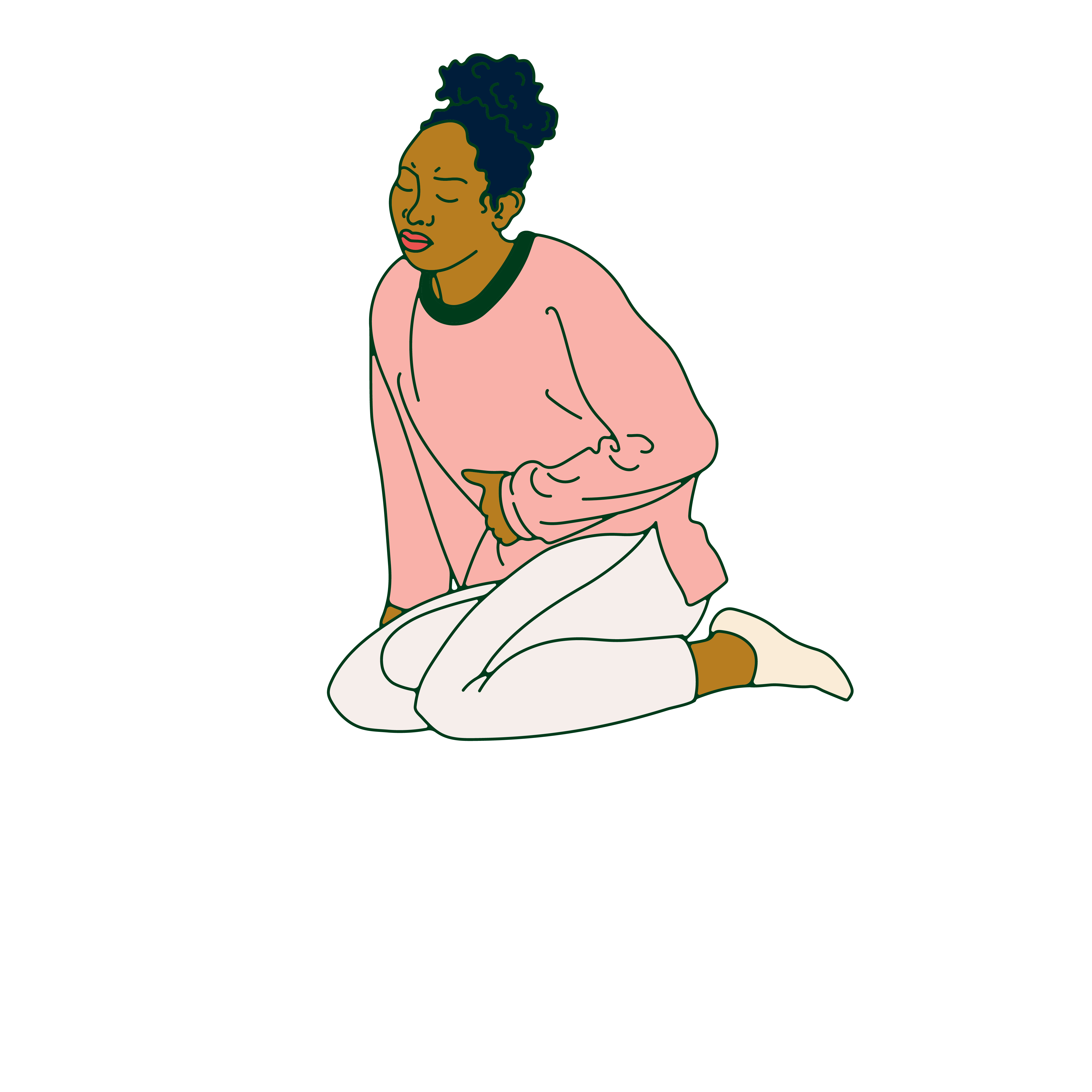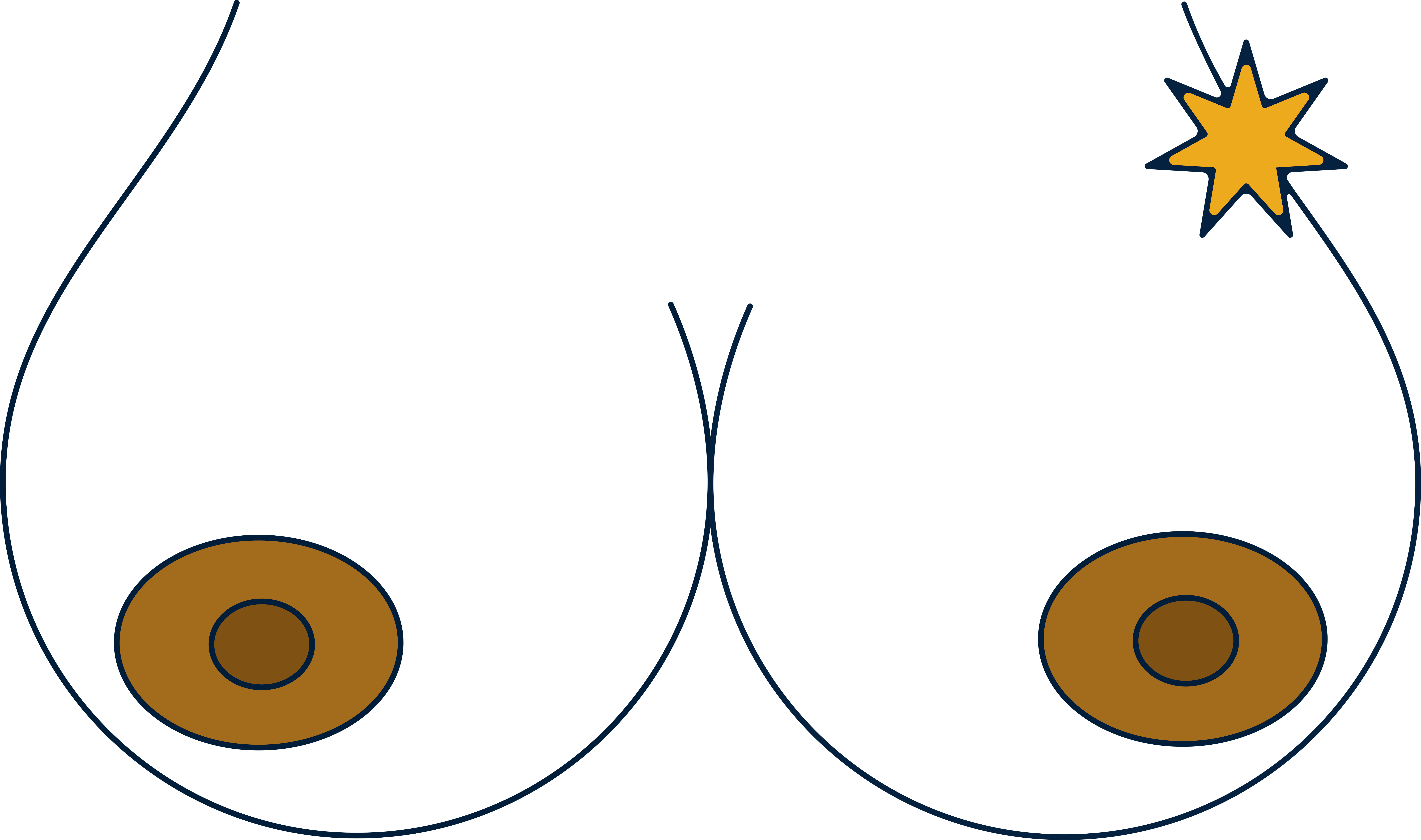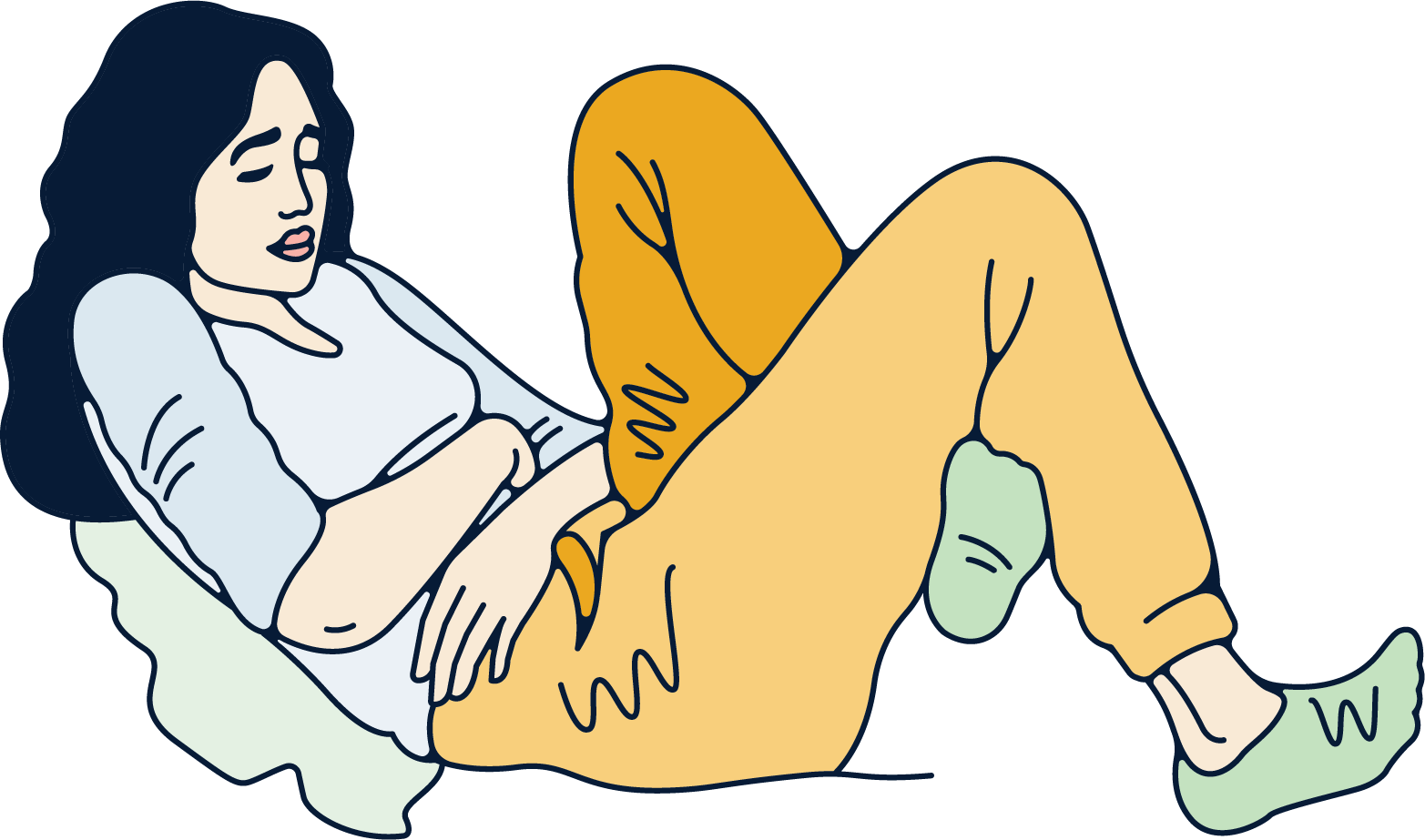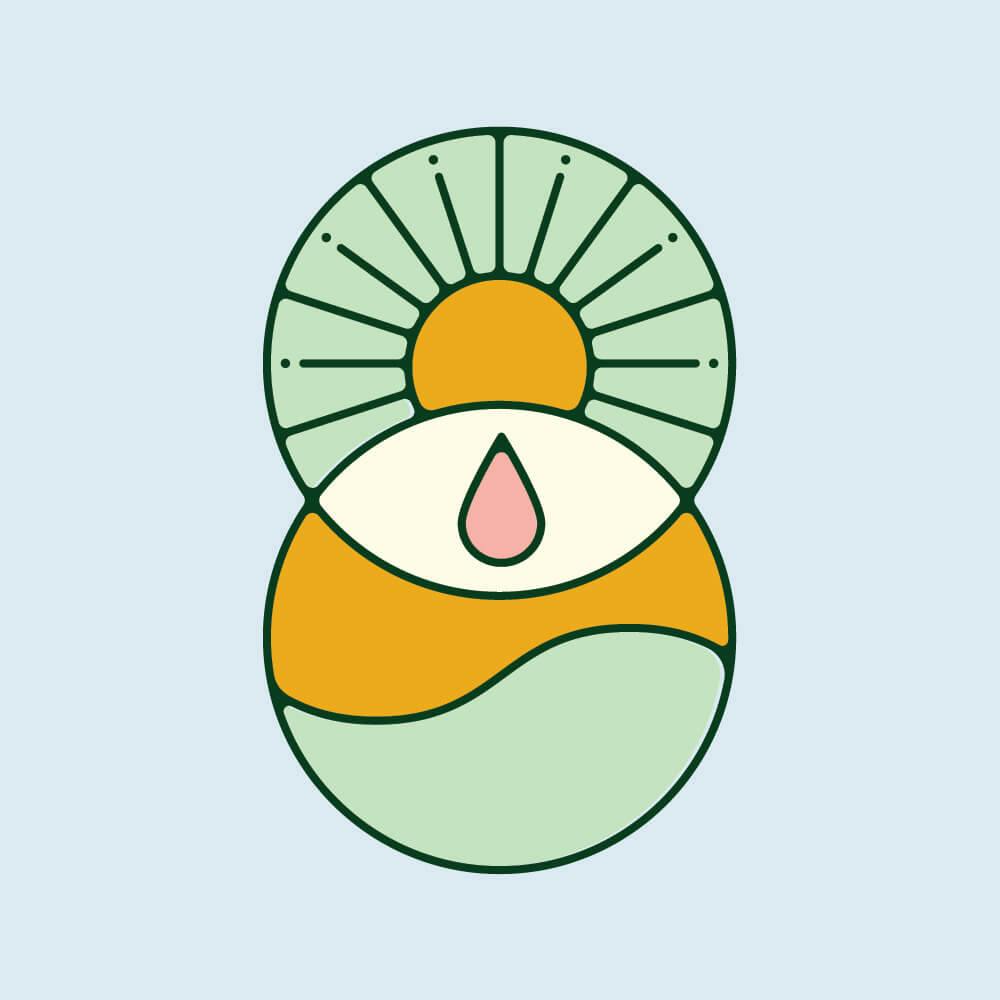Table of contents
1. Period cramps may be one of the most common symptoms amongst menstruating people, but they’re definitely not the only one.
2. Sore breasts and armpits
Illustrated by Sabrina Bezerra
Period cramps may be one of the most common symptoms amongst menstruating people, but they’re definitely not the only one.
Sure, dysmenorrhoea gets all the airtime, but there’s a range of period side effects that are just as common (even if they’re not spoken about that much).
Thanks to a recent viral TikTok video, women and people with periods on the app have been speaking about their least favourite period symptoms that aren’t period cramps. And there’s… a lot of them. From period poo to migraines, and even leg or bum pain, the symptoms of being on your period seem infinite.
We surveyed the Daye community and asked them what weirder symptoms they deal with month in, month out, so here are eight other symptoms you can get during your period that aren't cramps.
Constipation and diarrhoea
Period poo may not be a “weird” symptom of the menstrual cycle, but it’s taboo enough that many women don’t realise it’s a very common one.
During the luteal phase (right before your period), a spike in progesterone causes the onset of PMS symptoms, including constipation and bloating. Progesterone acts as a muscle relaxant and decreases contractions in the bowel, making everything slow down. As gas and food take longer to travel through your intestines, you feel backed up and gassy.
On the other hand, when your cycle starts (ie. you get your period) it’s common to experience diarrhoea or loose stools. To shed your old uterine lining your body produces chemicals called prostaglandins, which cause contractions in smooth muscle (like the uterus and bowels) and restrict local blood vessels, leading to cramps.
If your body produces too many prostaglandins, they can affect your bowels as well, speeding everything up and causing diarrhoea. And *that* is why you go to the bathroom a lot more often on your period.
Rectal pain
While we’re on the subject of bums and prostaglandins, another shockingly common symptom of periods is proctalgia fugax – or in layman terms, “anal pain that has no specific cause”.
Proctalgia fugax is a sudden intense spasm of the rectum that lasts anywhere between a few seconds to a few minutes. While extremely annoying, it’s not cause for concern.
Much like with period diharrohea, shooting anal pain during your period is also the result of overactive prostaglandins. Periods are quite literally a pain in the ass.
Disrupted sleep

If your period is preventing you from getting some much needed shut-eye, you're not alone. Women with PMS are twice as likely to experience sleep issues before and during their period.
Aside from the usual period symptoms like cramps and anxiety, both which can impact your quality of sleep, hormone fluctuations in the second part of your cycle slightly increase your body temperature, disrupting sleep even more.
Sensitive or dry skin
We all know that your period can cause hormonal breakouts, but did you know that the menstrual cycle can even affect how your skin feels?
Much like other organs in your body, your skin changes in response to fluctuating hormone levels, especially oestrogen.
Around your period, your skin may feel drier, more sensitive, and overall more easily irritated. Research suggests that this is due to lower levels of oestrogen, which plays a key role in collagen production, improved skin barrier function, and generally just keeping your skin plump and hydrated.
This is also why skin conditions such as dermatitis and psoriasis can also be triggered in the premenstrual phase.
Sore breasts and armpits

Breast pain, aka mastalgia, is often cyclical (meaning it’s associated with the menstrual cycle) and nothing to worry about.
Sore breasts are a common premenstrual symptom caused by hormonal fluctuations, and unfortunately a normal part of your cycle.
Before the onset of your period, during the luteal phase, your breasts may feel heavier, swollen, tender, and achy. You may also feel a shooting, sharp pain in either one or both breasts. The pain may radiate to your armpit as well, as there is breast tissue in your underarms too.
If you notice breast pain that is not cyclical, especially if it doesn’t go away and focused in one spot, you should have it checked out by your GP. Sore boobs alone aren't necessarily a sign of breast cancer, so don’t freak out yet! Inflammation, infection or injury could all explain non-cyclical breast pain, but it’s still a good idea to speak to your doctor about it.
Gum pain during your period
Thought menstrual and oral health were completely unrelated? Think again. The surge of oestrogen and progesterone that happens in the second part of your cycle (before your period arrives) can cause your gums to feel more inflamed, and potentially bleed more.
Oestrogen is a vasodilator, meaning it increases blood flow by expanding your blood vessels, including the ones in your gums. This can cause your gums to become more swollen or sensitive to anything that could be potentially irritating, such as plaque and bacteria. Incidentally, higher levels of oestrogen also hinder your ability to fight plaque formation. It’s a catch-22 of gum troubles.
Leg pain during your period

Pain in the thighs, or that radiates down to the legs, is a common symptom of period pain.
One reason for thigh and leg pain could be prostaglandins. Your whole body is connected by tissues and blood vessels, so the same pain that you feel in your uterus can easily impact your thighs as well. Your pain threshold is also lowest during the premenstrual and menstrual phases, making you a lot more susceptible to physical discomfort.
However, leg pain is more commonly a symptom of endometriosis. When you have endometriosis, tissue similar to the endometrium can grow outside the womb – such as your fallopian tubes, ovaries, and even your bladder and bowels. This tissue reacts to hormonal fluctuations, thickening and shedding much like your uterine lining. However, unlike the endometrium, endometrial tissue has no way of leaving the body, leading to inflammation and pain.
Researchers still aren’t 100% why leg pain is so common in women with endometriosis, but they believe that endometrial tissue can also grow around the pelvis, hips and thighs. This can not only cause muscle inflammation, but also put pressure on the sciatic nerve, which runs from your lower back down each leg, causing sciatica.
Sensitivity to smell
If your sense of smell changes throughout your cycle, you may not be the only one – but science is still figuring out why it may happen.
While some studies suggest you’re more sensitive to smells around ovulation, others claim the opposite, and some say smell sensitivity doesn’t change at all throughout the cycle. Although the research may be inconclusive (for now), early evidence points to the theory that hormonal fluctuations could, indeed, affect your sense of smell.
The bottom line? The menstrual cycle doesn’t only impact your reproductive organs. Every single body part or function can potentially be affected by hormonal fluctuations, causing all the above symptoms.
But remember, just because it’s common doesn’t mean you have to deal with it. If your period – or any of its side effects – if causing emotional or physical distress, you have the right to seek advice. If you find that any of these symptoms are interfering with your day to day, or affecting your quality of life, speak to your GP.





